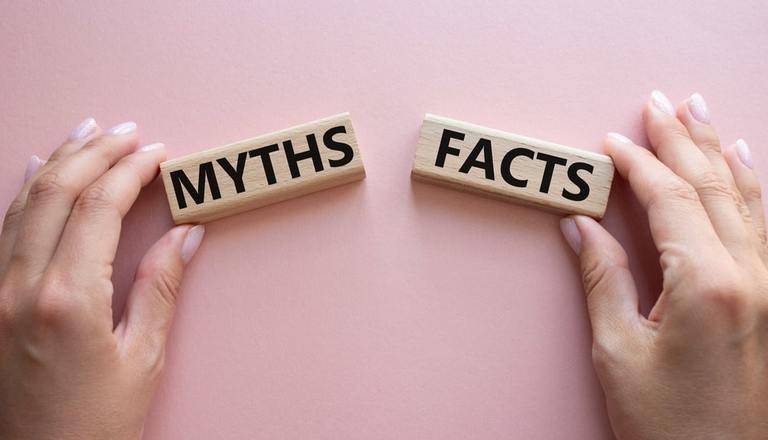
Some of the biggest lottery myths
We all know that the allure of the lottery often comes with a large amount of misconceptions and myths that can lead players astray. From supposed number selection strategies to questionable winning formulas, many people believe in certain "tricks" that claim to increase their chances of winning. But do these methods really work, or are they just a product of wishful thinking?
Let’s look at some of the most common lottery myths, examining the facts behind the fiction. By understanding the reality of lottery games, players can make more informed decisions about their participation and avoid falling prey to false hopes.
Myth #1: Certain Numbers Are Luckier Than Others
One of the most enduring lottery myths is that certain numbers are inherently "luckier" than others. Players often choose numbers based on birthdays, anniversaries, or other significant dates, believing these numbers have a higher probability of being drawn. However, the reality is that lottery draws are entirely random, and each number has an equal chance of being selected.
Lottery systems use random number generators (RNGs) or mechanical ball draw systems to ensure the outcome is unpredictable and unbiased. This means that every number, whether it's 7, 13, or 31, has the same probability of being drawn. There's no empirical evidence to suggest that certain numbers are more likely to appear than others.
Myth #2: Hot and Cold Numbers Can Predict Wins
Some players believe in the concept of "hot" and "cold" numbers, where hot numbers are those that have been drawn recently, and cold numbers are those that haven't appeared in a while. The idea is that hot numbers are more likely to continue appearing, while cold numbers are "due" for a win. However, this strategy is based on a flawed understanding of probability.
In reality, each lottery draw is an independent event, meaning the outcome is not influenced by previous draws. The probability of a number being drawn remains the same, regardless of its recent appearance or lack thereof. There's no statistical correlation between past draws and future outcomes, making hot and cold number strategies ineffective.
Myth #3: Playing the Same Numbers Every Time Increases Your Chances
Many players believe that playing the same numbers consistently will increase their chances of winning. This strategy is often based on the idea that the more times you play, the more likely you are to win. While it's true that playing more draws does give you more opportunities to win, the actual probability of winning remains the same.
Each lottery draw is a separate event, and the numbers are randomly generated. Playing the same numbers every time doesn't provide any advantage over playing different numbers each time. In fact, sticking to the same numbers might even lead to a false sense of security, making players more likely to overlook other potential winning combinations.
Myth #4: Certain Lottery Games Are Easier to Win Than Others
Some players believe that certain lottery games are more winnable than others, often citing the size of the jackpot or the number of balls in play. However, the odds of winning a lottery game are determined by the specific rules and mechanics of that game, not by the size of the jackpot.
In reality, most lottery games have similar odds structures, with the probability of winning determined by the number of possible combinations. While some games might have slightly better odds than others, the difference is often negligible. Players should be wary of games that claim to offer "easier" wins, as these often come with smaller prizes or lower jackpots.
Myth #5: Lottery Syndicates Guarantee Wins
Lottery “syndicates”, where players pool their resources to buy more tickets, have become increasingly popular. While syndicates can increase the chances of winning by covering more number combinations, they don't guarantee wins.
The odds of winning a lottery game remain the same, regardless of the number of tickets purchased. Syndicates do, however, provide a way for players to share the cost of playing and potentially increase their chances of winning smaller prizes. It's essential to note that syndicate winnings are typically split among members, so while the chances of winning might increase, the actual prize amount might be quite small.
Myth #6: You Can Use Math to Beat the Lottery
Some players believe that using complex mathematical formulas or algorithms can help predict lottery outcomes. While math can certainly help understand the probability of certain events, it's impossible to predict the outcome of a truly random lottery draw.
Lottery systems are designed to be unpredictable, making it impossible to develop a foolproof mathematical formula for winning. Any claims of a winning system or strategy should be viewed with skepticism, as these often rely on flawed assumptions or a misunderstanding of probability.
Myth #7: Winning the Lottery Is a Life-Changing Solution to Financial Problems
Finally, many people view winning the lottery as a solution to their financial problems. While it's true that a life-changing jackpot can provide financial security, the reality is that most lottery winners face significant challenges in managing their newfound wealth.
Studies have shown that sudden wealth can lead to financial mismanagement, relationship problems, and even mental health issues. Winning the lottery is not a panacea for financial woes; rather, it's essential to develop healthy financial habits and a solid understanding of personal finance.
Lottery games can be a fun and entertaining way to pass the time, but it's essential to separate fact from fiction when it comes to winning strategies. By understanding the reality of lottery games, players can make more informed decisions about their participation and avoid falling prey to false hopes.
While there's no guaranteed way to win the lottery, players can still enjoy the thrill of playing by understanding the odds and mechanics of the game. Rather than relying on myths and misconceptions, players should focus on responsible gaming practices and a healthy understanding of probability.
